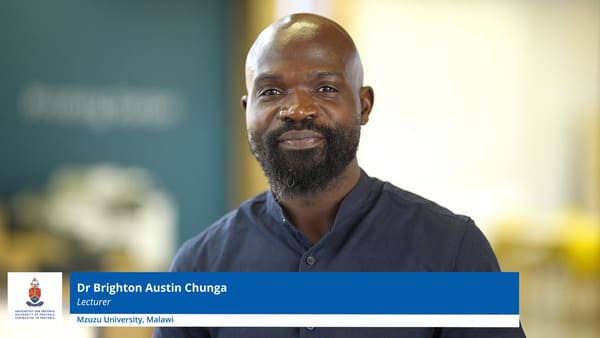Determination of River Basin Closure and Catchment Restoration in Malawi
DR BRIGHTON AUSTIN CHUNGA
Malawi’s water is under severe pressure from all sides: the country supports an agri-based economy, increasing industrialisation and hydroelectric power generation for its electrical needs, all while facing environmental degradation such as deforestation and the resulting climate change. High population growth numbers have resulted in increased water demand for domestic and municipal use, irrigation, tourism, mining, manufacturing and water transportation. While the country has made tremendous efforts to conserve, allocate and utilise water resources in the face of these threats, the challenges are intensifying. Dr Brighton Austin Chunga proposes the unique idea of futuristic thinking by holistically predicting the basin closure of crucial catchment areas.
By predicting when a catchment will no longer be able to supply water to meet social and environmental needs, the project will produce evidence on which the catchment restoration and protection actions will be based. Currently, such measures are implemented with minimal scientific proof and provide primarily short-term answers to real water supply problems for human consumption and ecosystem support.
After carefully assessing the catchments and analysing the river basin closures, catchments will be classified as either closed, nearing closure or open, and resources will be allocated accordingly. The object of the exercise is to simulate and predict river basin closure of hotspot catchments and devise restoration programmes to ensure water security for social and economic development. For this purpose, the study assess upstream and downstream movements within catchments that lead to conflicts in water demand. The project will develop and perform computerised hydrological models to simulate the characteristics of the river basins. This will enable researchers to run system dynamics simulations to understand future water resource scenarios in the targeted river basins.
The study will quantify both surface and groundwater resources in selected catchments and river basins for appropriate water allocation by the National Water Resources Authority. It will also implement activities aimed at restoring degraded catchments and protect those catchments under threat. Farmers and communities surrounding the targeted catchments will be equipped with entrepreneurial skills to empower them in other or future income-generating businesses. The research will make use of a mixed-method research design, and will include hydrological modelling exercises, computing abstractions by users in particular catchments, in-depth interviews and focus group discussions.
Dr Brighton Austin Chunga is an irrigation and water resources management specialist with more than 10 years of experience. He is a lecturer in the Department of Water and Sanitation, Mzuzu University, Malawi. Dr Chunga holds a PhD in Water Resources Management from Cranfield University, UK, a BSc in Irrigation Engineering from the University of Malawi and an MSc in Water Resources Engineering and Management from the University of Stuttgart, Germany. His research focuses on system dynamic modelling, hydrogeology and groundwater development, irrigation engineering, catchment hydrology, geographical information systems and geoinformatics, hydrological modelling, water resources management and water allocation in the face of climate change.
Dr Brighton Austin Chunga
FAR-LEAF Research Fellow
Mzuzu University
Malawi
The Future Africa Research Leader Fellowship (FAR-LeaF) is a fellowship programme, focussed on developing transdisciplinary research and leadership skills, to address the complex, inter-linked challenges of health, well-being, and environmental risks in Africa.




